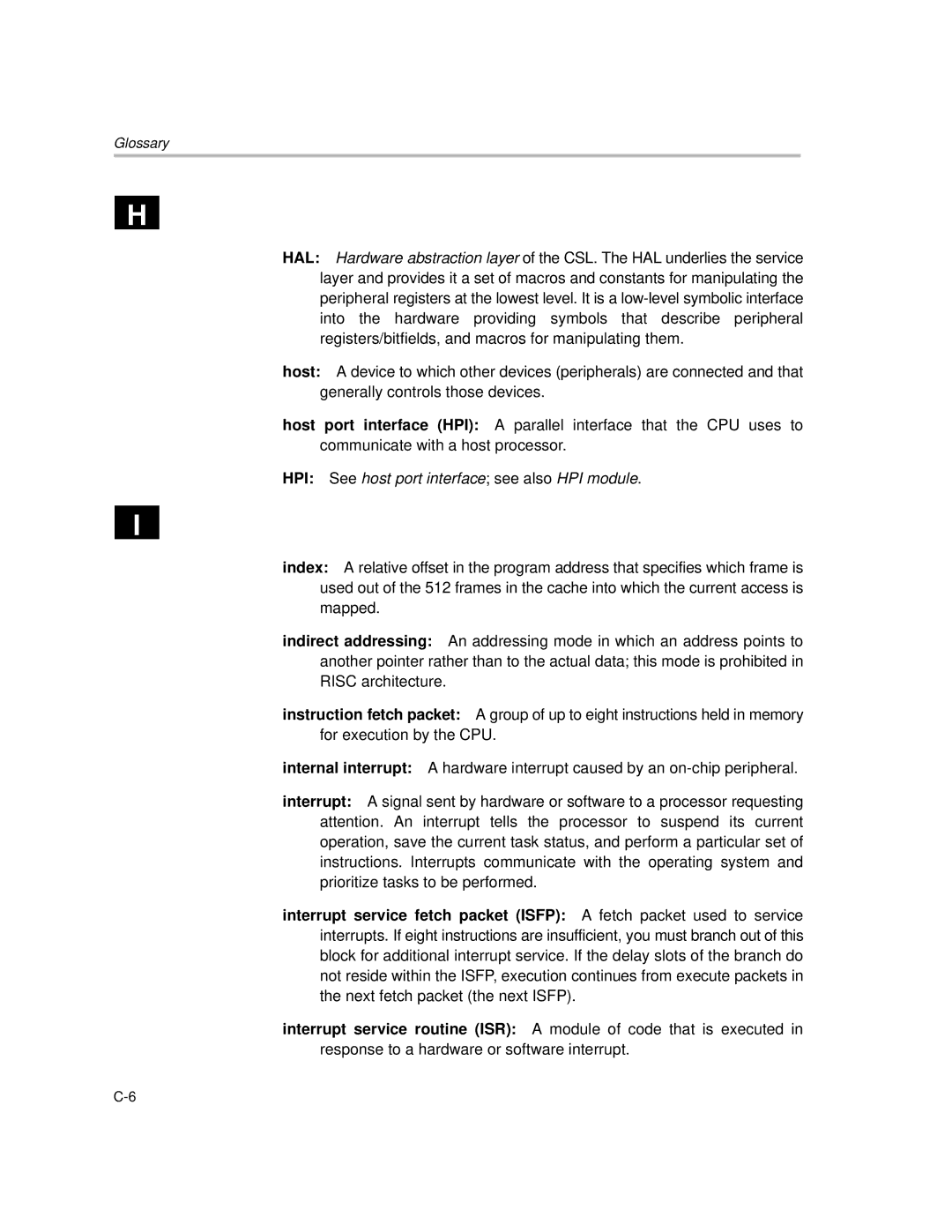
Glossary
H
HAL: Hardware abstraction layer of the CSL. The HAL underlies the service layer and provides it a set of macros and constants for manipulating the peripheral registers at the lowest level. It is a
host: A device to which other devices (peripherals) are connected and that generally controls those devices.
host port interface (HPI): A parallel interface that the CPU uses to communicate with a host processor.
HPI: See host port interface; see also HPI module.
I
index: A relative offset in the program address that specifies which frame is used out of the 512 frames in the cache into which the current access is mapped.
indirect addressing: An addressing mode in which an address points to another pointer rather than to the actual data; this mode is prohibited in RISC architecture.
instruction fetch packet: A group of up to eight instructions held in memory for execution by the CPU.
internal interrupt: A hardware interrupt caused by an
interrupt: A signal sent by hardware or software to a processor requesting attention. An interrupt tells the processor to suspend its current operation, save the current task status, and perform a particular set of instructions. Interrupts communicate with the operating system and prioritize tasks to be performed.
interrupt service fetch packet (ISFP): A fetch packet used to service interrupts. If eight instructions are insufficient, you must branch out of this block for additional interrupt service. If the delay slots of the branch do not reside within the ISFP, execution continues from execute packets in the next fetch packet (the next ISFP).
interrupt service routine (ISR): A module of code that is executed in response to a hardware or software interrupt.
